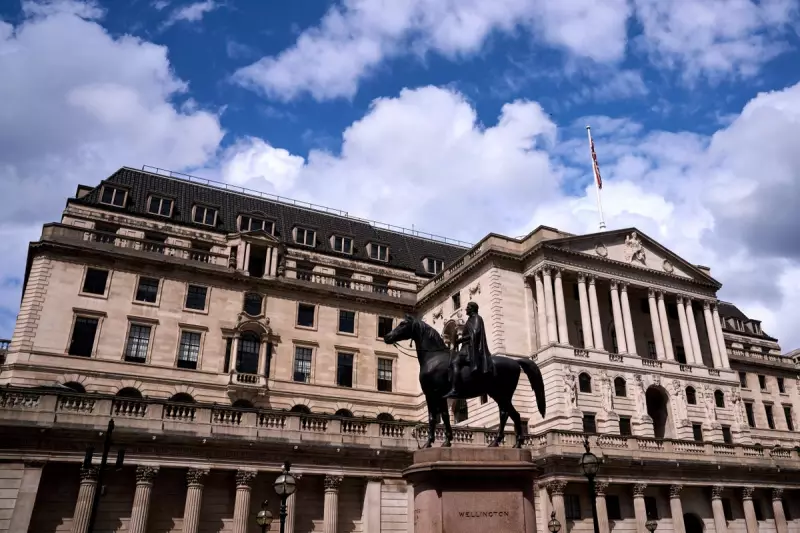
The British pound stumbled on Wednesday as fresh inflation data showed price pressures cooling faster than expected, setting the stage for the Bank of England to potentially cut interest rates as early as December.
Market Reaction to Cooling Inflation
Official figures released by the Office for National Statistics revealed that the consumer price index rose 3.6% in October compared to the same month last year, down from September's 3.8% increase. This reading matched market expectations and provided encouraging signs that inflation may have peaked.
More significantly for policymakers, annual service price inflation - a key metric watched by the Bank of England - cooled to 4.5% last month from 4.7% in September, coming in below the 4.6% consensus forecast.
The FTSE 100 extended recent declines, closing down 44.89 points at 9,507.41, while the FTSE 250 ended 12.57 points lower at 21,412.24. The AIM All-Share bucked the trend, rising 6.21 points to 740.68.
Analysts Predict December Rate Cut
Financial markets immediately priced in increased chances of monetary easing from Threadneedle Street, with several prominent analysts now expecting a rate reduction at the Bank's December meeting.
Kallum Pickering of Peel Hunt explained that elevated inflation has been a "serious headwind" to economic growth, eroding real purchasing power and damaging confidence. However, he believes "the worst is probably over" barring further policy mistakes.
Mr Pickering anticipates the Bank of England will implement a quarter-point rate cut in December, followed by two additional reductions in the first half of 2026, potentially bringing the bank rate down to 3.25% by mid-year.
Sanjay Raja of Deutsche Bank echoed this sentiment, stating the Monetary Policy Committee now has a "clearer path" for a Christmas rate cut. He noted that with the labour market softening more than expected and GDP growth weaker than projected, Governor Andrew Bailey will likely feel more confident about cutting rates below the current 4% level.
Currency and Global Market Impact
The increased likelihood of looser monetary policy weighed heavily on the pound, with sterling quoted at $1.3076 at the London close, down from $1.3141 on Tuesday.
European markets showed modest declines, with Paris's CAC 40 falling 0.2% and Frankfurt's DAX 40 easing 0.1%. In New York, markets were mixed as investors awaited earnings from chipmaker Nvidia, with the Dow Jones down 0.3% while the Nasdaq Composite advanced 0.5%.
Kenneth Lamont of Morningstar described Nvidia's results as a "macro event, acting as a bellwether for the defining investment theme of our time." Analysts expected the company to report third-quarter revenue of $55.10 billion and earnings per share of $1.25.
FTSE 100 Movers and Corporate News
On London's flagship index, mining companies benefited from rising gold prices, with Fresnillo surging 5.8% and Endeavour Mining gaining 1.3%. Gold traded higher at $4,081.23 per ounce compared to $4,060.07 on Tuesday.
JD Sports Fashion rallied 4.4% ahead of Thursday's trading update, while ICG continued its recent progress with a 4.1% rise. Sage Group climbed 1.2% after reporting strong full-year results, including a 14% increase in pre-tax profit to £484 million.
The defence sector faced pressure, with BAE Systems and Babcock International leading the fallers, down 4.5% and 3.4% respectively. Lloyds Banking fell another 1.6% amid ongoing rumours of potential tax increases in the upcoming budget.
On the FTSE 250, WH Smith rose 6.9% despite news that its chief executive had resigned following an investigation that uncovered accounting errors in its North American operations. Analysts at Peel Hunt noted that "while the headlines are grim, it really could have been a lot worse."
Looking ahead, Thursday's economic calendar features an interest rate decision in China, September non-farm payrolls in the US, and eurozone consumer confidence data. UK corporate updates are expected from Halma, Johnson Matthey, and JD Sports Fashion.





